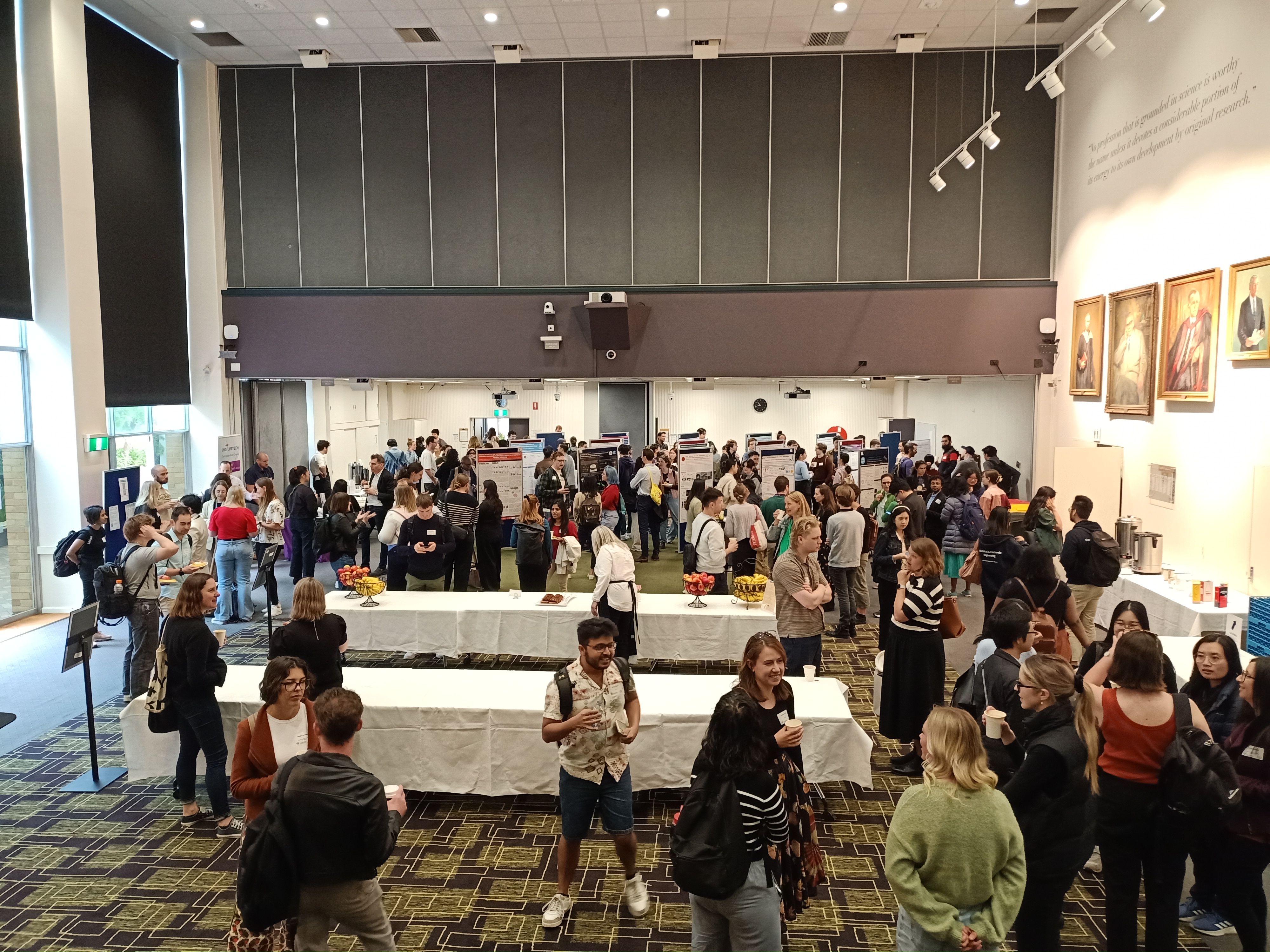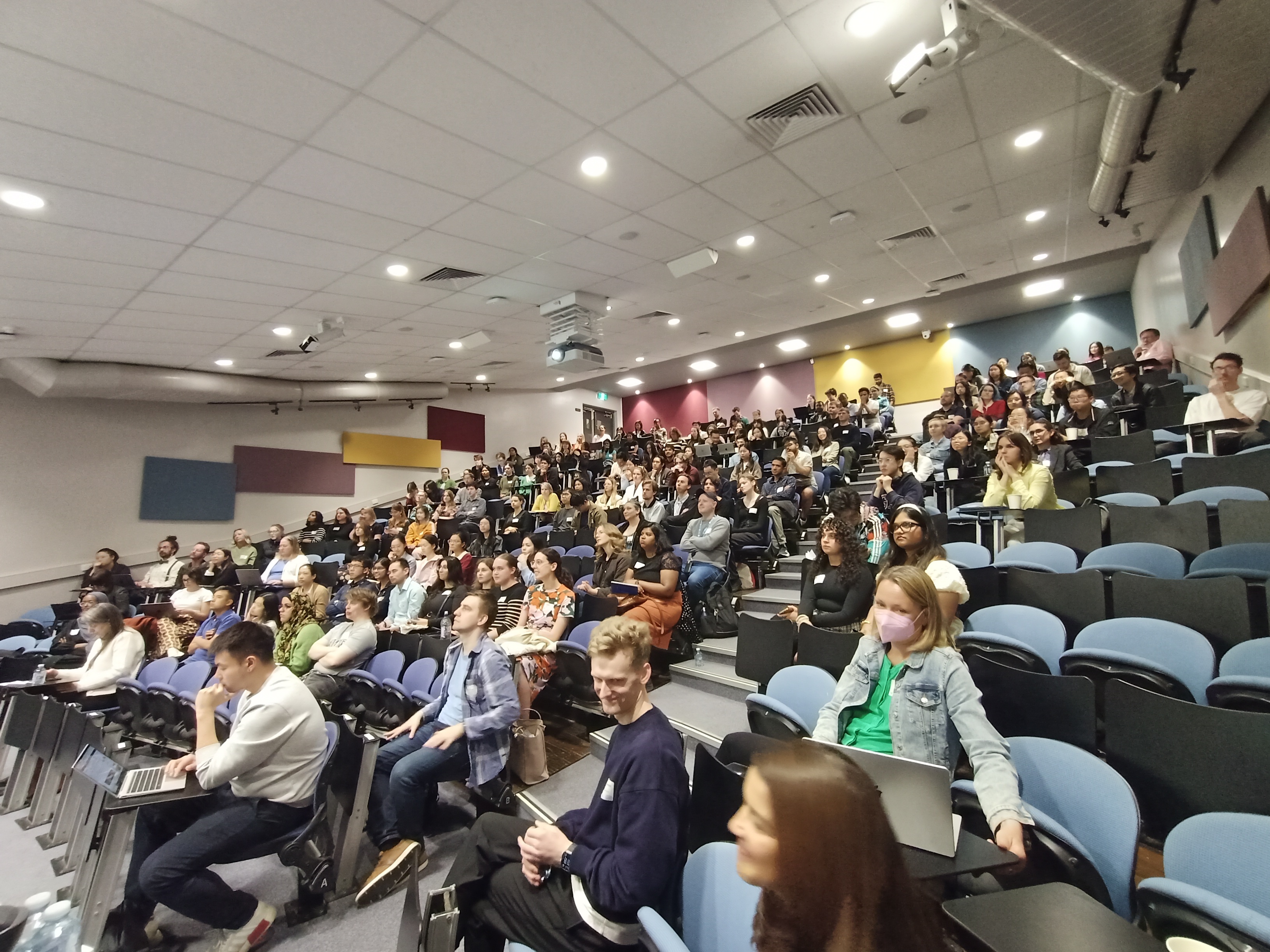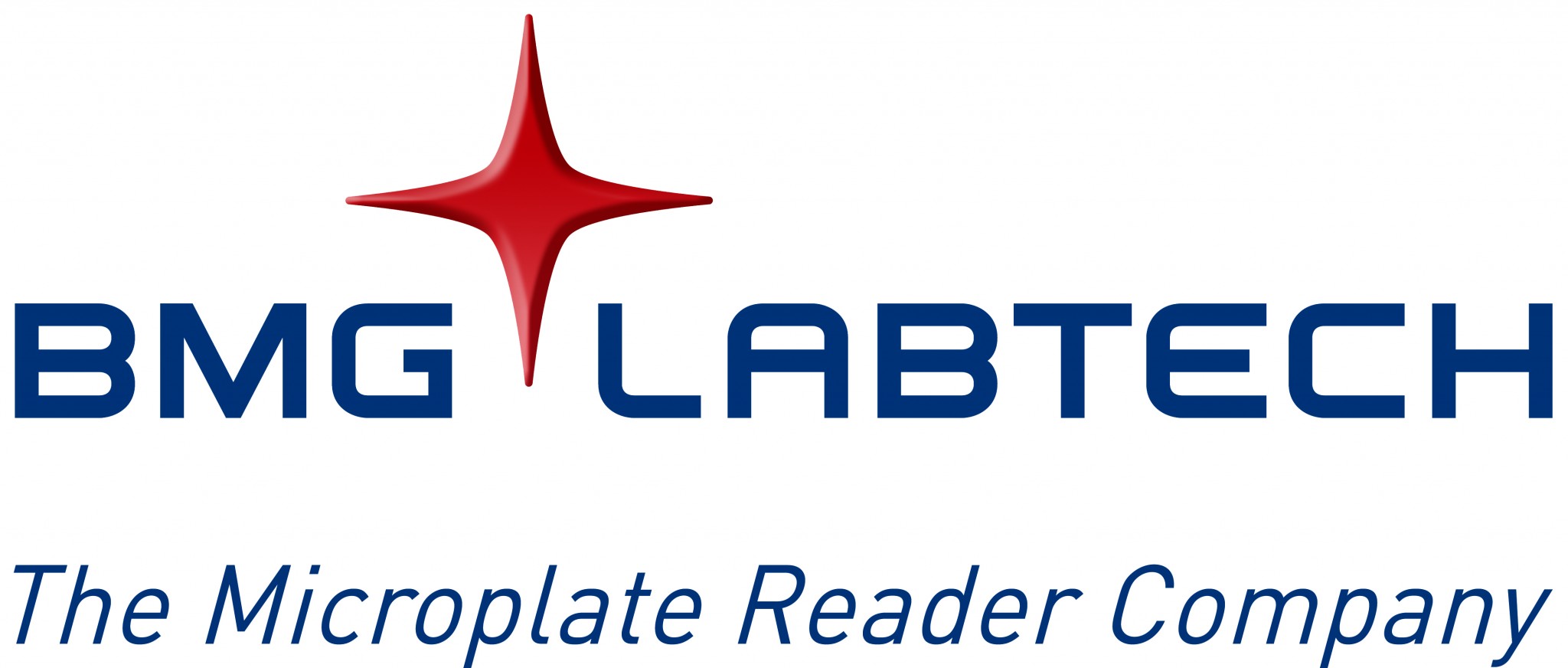VIIN Young Investigator Symposium 2025
| Date | 14 November - 14 November 2025 |
| Time | 8am - 7pm |
| Venue | Monash Institute of Pharmaceutical Sciences, Parkville |
| Location | Parkville View Map |
| iCal | Add to Calendar |
On Friday 14 November 2025, the VIIN Young Investigator Symposium is back for another stellar showcase of emerging talent!
In 2025, we are again delighted to be holding the YIS at the Monash Institute of Pharmaceutical Sciences (MIPS). We thank MIPS for their kind support in hosting us.
The purpose of the Young Investigator Symposium is to provide students, RAs and postdocs a forum for networking, career development and scientific exchange. We hope it will provide you with an opportunity to keep in touch with colleagues, present your research, and develop your CVs.
The day features keynote speakers, oral presentations and rapid fire (science bite) talks, two poster sessions, morning and afternoon teas, lunch, tea and coffee, and networking and nibbles to conclude the day. All presenters will be offered a poster or talk and have the opportunity to win a prize, including the prestigious Hartland Oration Prize, for their work.
All welcome - undergraduate and post-graduate students, research assistants, post-doctoral scientists from academia and industry. Mid-career researchers and research group leaders are encouraged to attend and support their students or colleagues. We hope to see you all there!
Download a copy of the YIS 2025 event flyer here
Program and Keynote Speakers
Final Program and Abstract Booklet now available! (Wed 12 November 2025)
>>> Download here (Large file size: 18.4MB) <<<
Preliminary Program (05/11/2025): Download here
Program-at-a-glance (31/10/2025): Download here
Keynote speakers announced!
We are delighted to announce our two excellent keynote speakers:
- Dr Marcel Doerflinger, Laboratory Head, Infection and Global Health Division, Walter and Eliza Hall Institute of Medical Research
- Dr Nancy Wang, Ruth Bishop Fellow and Team Leader, Infection, Immunity and Global Health, Murdoch Children's Research Institute
We look forward to welcoming them both as part of our fantastic Young Investigator Symposium program for 2025.
Registration
Registration is now closed (open 16 July 2025 - 22 October 2025)
2025 Registration page (via TryBooking)
Allocations and Instructions for Presenters
Allocations and Instructions for Presenters (announced Thurs 9 October 2025):
>>> Download Allocations and Instructions here
We are pleased to announce the selected abstracts and presentation allocations for this year's Symposium. Please download the file above to view your allocated presentation type, along with important instructions for preparing your oral presentation, science bites talk, or poster.
Presenters, please be reminded that you must register before 5pm on Friday 17 October 2025, or else your presentation may be removed from the program. Please also note that ALL TALKS, whether oral presentations or Science Bites, will need to be sent through for compilation prior to the symposium; we would ask that you take particular note of these deadlines. We will be unable to contact individual submitters to inform them of their presentation type and would ask you rely on the website for further information.
If you have questions or concerns that aren't answered here, please contact us via email at info@viin.org.au.
Thank you to this year's Sponsors:
Sponsors and Prizes:
To sponsor a prize, exhibit or advertise at the VIIN Young Investigator Symposium 2025, please contact the VIIN Program Manager at info@viin.org.au

Abstract submissions
Abstract submissions closed on Wed 3 September 2025
Top tips for preparing your abstract >> Download here

2025 Organising Committee:
Dr Aaron Brice (Co-Chair), Australian Centre for Disease Preparedness CSIRO
Dr Stella Liong (Co-Chair), Centre for Respiratory Science and Health, School of Health and Biomedical Sciences, RMIT University
Dr Thomas Angelovich, School of Health and Biomedical Sciences, RMIT University
Dr Sarah Ashley, Infection, Immunity and Global Health, Murdoch Children's Research Institute (MCRI)
Dr Marine Besnard, Centre for Inflammatory Diseases, School of Clinical Sciences at Monash Health, Monash University
Dr Dimitra Chatzileontiadou, La Trobe Institute for Molecular Science (LIMS), La Trobe University
Dr Sandra Chishimba, Burnet Institute
Dr Michelle Chonwerawong, Centre for Innate Immunity and Infectious Diseases, Hudson Institute of Medical Research
Dr Sam Davis, Immune Resilience Future Science Platform, CSIRO
Dr Emily Eriksson, Walter and Eliza Hall Institute of Medical Research
Dr Isabelle Foo, Peter Doherty Institute for Infection and Immunity, Department of Microbiology and Immunology, University of Melbourne
Dr Paul Gill, Department of Immunology, Alfred Hospital, Monash University
Dr Robson Kriiger Loterio, Burnet Institute
Dr Kevin Lee, Department of Medicine, Royal Melbourne Hospital and University of Melbourne
Dr Christophe Macri, Bio21 Institute, Department of Biochemistry and Pharmacology, University of Melbourne
Dr Kitty McCaffrey, Centre for Innate Immunity and Infectious Diseases, Hudson Institute of Medical Research
Dr Damian Oyong, Life Sciences Discipline (Disease Elimination), Burnet Institute
Dr Louis Perriman, Murdoch Children's Research Institute (MCRI), Fiona Elsey Cancer Research Institute (FECRI)
Dr Ashleigh Rogers, Department of Microbiology, Monash Biomedicine Discovery Institute, Monash University
Dr Sampa Sarkar, School of Science, RMIT University
Dr Natalia Sampaio, Centre for Innate Immunity and Infectious Diseases, Hudson Institute of Medical Research
Dr Simona Seizova, Walter and Eliza Hall Institute of Medical Research
Dr Ghizal Siddiqui, Monash Institute of Pharmaceutical Sciences (MIPS), Monash University
Dr Helen Stölting, Department of Biochemistry and Molecular Biology, Monash Biomedicine Discovery InstituteMonash University
Dr Isabella Stuart, Peter Doherty Institute for Infection and Immunity, Department of Microbiology and Immunology, University of Melbourne
Dr Caroline Soliman, Biopharmaceutical Product Development (R&D), CSL Innovation, University of Melbourne
Dr Praveena Thirunavukkarasu, Department of Biochemistry and Molecular Biology, Monash Biomedicine Discovery Institute, Monash University
Dr Ryan Toh, Murdoch Children's Research Institute (MCRI)
Dr Naveen Vankadari, Bio21 InstituteDepartment of Biochemistry and Pharmacology, University of Melbourne
Dr Kayla Wilson, Peter Doherty Institute for Infection and Immunity, Department of Microbiology and Immunology, University of Melbourne
Dr Jinxin Zhao, Department of Microbiology, Monash Biomedicine Discovery Institute, Monash University
Madeleine Wemyss, VIIN Project Officer


.png)

